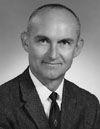Main Street: Deciphering the truth behind abuse
Published 5:00 pm Wednesday, September 15, 2004

- Rich Wandschneider
Cory Jewell Jensen spoke to over 100 parents and townspeople at the Enterprise School last Thursday night, and met with over 100 professional teachers, social workers, and law enforcement officials all day Friday at the Joseph Civic Center. Jensen is an expert on child abuse. She treats child molesters.
Some of what she said was old – relatives and close friends are the most likely offenders. Some was downright frightening – the influence of easy access to pornography and the ease with which abusers use the internet to soften and recruit victims. But the thing that made me think the hardest was the difficulty of deciphering truth in the stories of abusers. After treating over 4,000 perpetrators, Jensen says that her odds in picking a real offender from personal testimony are no better than a flip of the coin.
Judges and juries must listen to stories by supposed victims and supposed perpetrators. In analyzing the world of sexual predators, Jensen uses data collected from admitted and convicted perpetrators. She listens to the people from NAMBLA (“national man-boy love association;” men who are proud of their desires for sex with children), and to convicted molesters.
From them she learns that some perpetrators fantasize about and act out their fantasies on very young children, others on pre-pubescents, etc. She studies the ways in which perpetrators “groom” victims, and tells us that they rarely get caught with the first or sixth or eighth victim. Although she is no better than the coin flip at discerning the truth in their stories, she can tell us that fewer than five percent of children reporting abuse are lying, and that it usually takes them three adults to find a believing ear.
A weird game
Jensen, the daughter of a clergyman, says that “Christian counseling” doesn’t work very well with convicted perpetrators. Church people, she believes, do some things very well, but the “love and forgiveness” preached by Christianity plays into the hands of perpetrators who are prone to re-offend. For some abusers, piling up victims becomes a weird game, where they take greater chances of being caught and then talking and positioning their ways out. The counseling and offending of an admitted perpetrator can become such a game. Maybe that’s the story of some of the many priests and preachers sent off to counseling retreats and then to other parishes. According to Jensen, the most effective treatments are harsher: lie detectors, penile arousal meters, aversion therapies.
After thinking about the problems with truth-telling in child molesters, it occurred to me that there are other recent developments in truth telling that are just as significant. Consider the number of convictions overturned because of DNA evidence. And consider corroborating evidence from studies questioning the veracity of “eye witness accounts.” Test after repeated test show that we are not very good observers; DNA reversals of murder and rape convictions are only the most sensational examples.
Jensen pointed to one reason for this problem. We are more likely to believe the story of someone we like and feel comfortable with than we are of someone we are initially put off by (or of a child). This might be because of physical appearance and/or a person’s “station” in society. (And smart perpetrators insinuate themselves into such stations in schools, churches, coaching positions and youth groups.) Our initial impressions and the blend of attitudes and prejudices that I would call a “world view” are very intractable. Colleagues and friends of perpetrators often continue to disbelieve after admission and conviction.
The Blue Eye Experiment
Years ago a teacher told a class of fourth or fifth graders that people with brown eyes are dumber than people with blue eyes – and she watched as the brown-eyed kids taunted and abused the blue-eyes. When she turned the tables, saying that she had mistaken her “evidence,” the blue-eyes were just as mean to the brown-eyes. The experiment has been reproduced with similar results with adults.
What do we make of all of this as parents and citizens? I believe that it puts greater responsibility on each of us to examine our own prejudices – our “pre-judgments” – in matters of public debate, whether that be in a local land use or criminal hearing, or in the major state and national issues of the day.
Cory Jewell Jensen would say that the most important thing for us to know is that we are responsible for protecting our children. We are the adults who must encourage their confidence, teach them awareness, and listen to their stories. And if you need help in doing that, please get in touch with the good folks at Safe Harbors, local law enforcement agencies, the District Attorney’s Office, “Building Healthy Families,” the County Mental Health Clinic, or State Department of Human Services. Cory Jensen says that our county agencies have good state-wide reputations for cooperation and diligence when dealing with child abuse. Let’s help them keep doing it and help us keep our children safe.
Prejuding “truth”
Move this discussion to political ground. Right now many researchers and journalists have scoured the records and the accusations of the Swift Boat Veterans group concerning John Kerry’s Vietnam service. The book which accusers cite, “Unfit to Command,” turns out to be built on half truths and untruths. But it is number one on the New York Times Bestseller List. I’ve not yet seen “Fahrenheit 911,” but from reviews and statements by Michael Moore and other anti-Bush people, I know that many of them consider GW “juvenile” and downright “dumb.” His SAT scores and seven or eight years at tough colleges don’t make him a genius, but the man is not juvenile or stupid unless that is what you are looking for him to be. Our “pre-judgments” are often stronger than the facts or “truth” of a matter.
Rich Wandschneider is director of Fishtrap, Inc., and a longtime columnist for the Chieftain. He can be reached through the Web at www.fishtrap.org.





